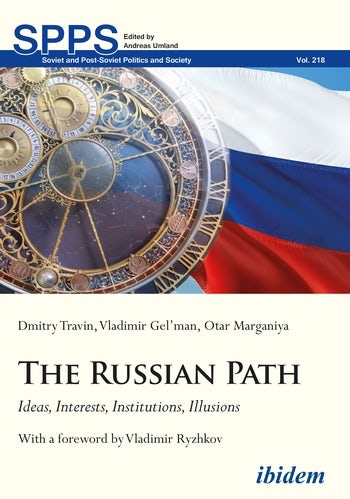New from Our Distributed Presses! Science with Street Value, Creative Industries in Syria, How to Use Exploratory Scenario Planning (XSP) and More!

Our weekly list of new books is now available!
Science with Street Value
A Physicist’s Wanderings off the Beaten Track
Theodore Modis
In his groundbreaking book, Predictions: Society’s Telltale Signature Reveals the Past and Forecasts the Future, Theodore Modis showed readers a fascinating new way to understand our society and ourselves by applying fundamental scientific concepts to predicting social phenomena.
Creative Industries in Syria
Changes and Adaptation
Edited by Ettijahat – Independent Culture
Foreword by Sarab Atassi
This unique book focuses on the transformations in creative industries and presents a collection of research papers describing and analyzing this pivotal period, in which their role evolved from producing tangible cultural products to becoming an active player in the maintenance of knowledge and a source of support and revenue.
Seeking the National Interest
Slovakia after 15 Years of EU and NATO Accession
Edited by Radoslava Brhlíková
This collected volume presents research focusing on the interaction of domestic, foreign, and transnational actors in the process of the construction of national interests.
Mass Murder and Serial Murder
An Integrative Look
Arnon Edelstein
Translated by Sara Yurman
Arnon Edelstein examines the various categories of mass murder and serial murder and suggests a new category: “mass-serial murder”. He presents and criticizes the most up-to-date research and theoretical literature in the field and suggests an integrative theoretical model.
From the Ukrainian Voices series
Towards a Political Economy of Ukraine
Selected Essays 1990–2015
Marko Bojcun. Foreword by John-Paul Himka
The essays in this book explore the major developments, both domestic and international, that shaped the first quarter-century of Ukraine’s independence.
From the Studies in Historical Philosophy series
Allegory in Early Greek Philosophy
Jennifer Lobo Meeks
Allegory in Early Greek Philosophy examines the role that allegory plays in Greek thought, particularly in the transition from the mythic tradition of the archaic poets to the philosophical traditions of the Presocratics and Plato.
From the Soviet and Post-Soviet Politics and Society series
The Russian Path
Ideas, Interests, Institutions, Illusions
Dmitry Travin, Vladimir Gel’man, and Otar Marganiya
Foreword by Vladimir Ryzhkov
This study offers a different framework for the analysis of political and economic developments in present-day Russia. It is based on four ‘i’s—ideas, interests, institutions, and illusions.
From the Body and Consciousness series
Decisions and Transformations
The Phenomenology of Embodiment
James Richard Mensch
The ambiguity inherent in our being both can be put in terms of a double “being in.” Thus, while it is true that the world is in consciousness taken as a place of appearing, it is equally true that, taken as embodied, consciousness is in the world. How can our selfhood support both descriptions? Starting with Husserl’s late manuscripts on birth and death, James Mensch traces out the effects of this paradox on phenomenology.
From the Edition Noema series
Depends on How You Tell It
A Mother’s Search from Tel Aviv to India
Dorit Silverman
From Tel Aviv’s underworld of nightclubs, drug dealers, and prostitutes to the beauty and mysteries of India, Anna goes on a fascinating journey, following clues and threads of information, alongside an adventurous rescuer, all while getting help from friends and a variety of characters she had never met before.
From the Theology, Politics and Society series
Human Being and Vulnerability
Beyond Constructivism and Essentialism in Judith Butler, Steven Pinker, and Colin Gunton
Joseph Sverker
In order to understand what underlies the division between nature and nurture, or biology and the social in school, Joseph Sverker develops new central concepts such as a kenotic personalism, a weak ontology of relationality, and a relational and performative reading of evolution
From the Policy Focus Reports series
How to Use Exploratory Scenario Planning (XSP)
Navigating an Uncertain Future
Jeremy Stapleton
This manual is a comprehensive resource for anyone interested in using this emergent planning approach, which is effective at the local, regional, or organizational level.
Categories:Distributed Pressesibidem PressLincoln Institute of Land Policy
Tags:Allegory in Early Greek PhilosophyArnon EdelsteinCreative Industries in SyriaDecisions and TransformationsDepends on How You Tell ItDmitry TravinDorit SilvermanEttijahatHow to Use Exploratory Scenario Planning (XSP)Human Being and VulnerabilityJames Richard MenschJennifer Lobo MeeksJeremy StapletonJoseph SverkerMarko BojcunMass Murder and Serial MurderOtar MarganiyaRadoslava BrhlíkováScience with Street ValueSeeking the National InterestThe Russian PathTheodore ModisTowards a Political Economy of UkraineVladimir Gel’man



















